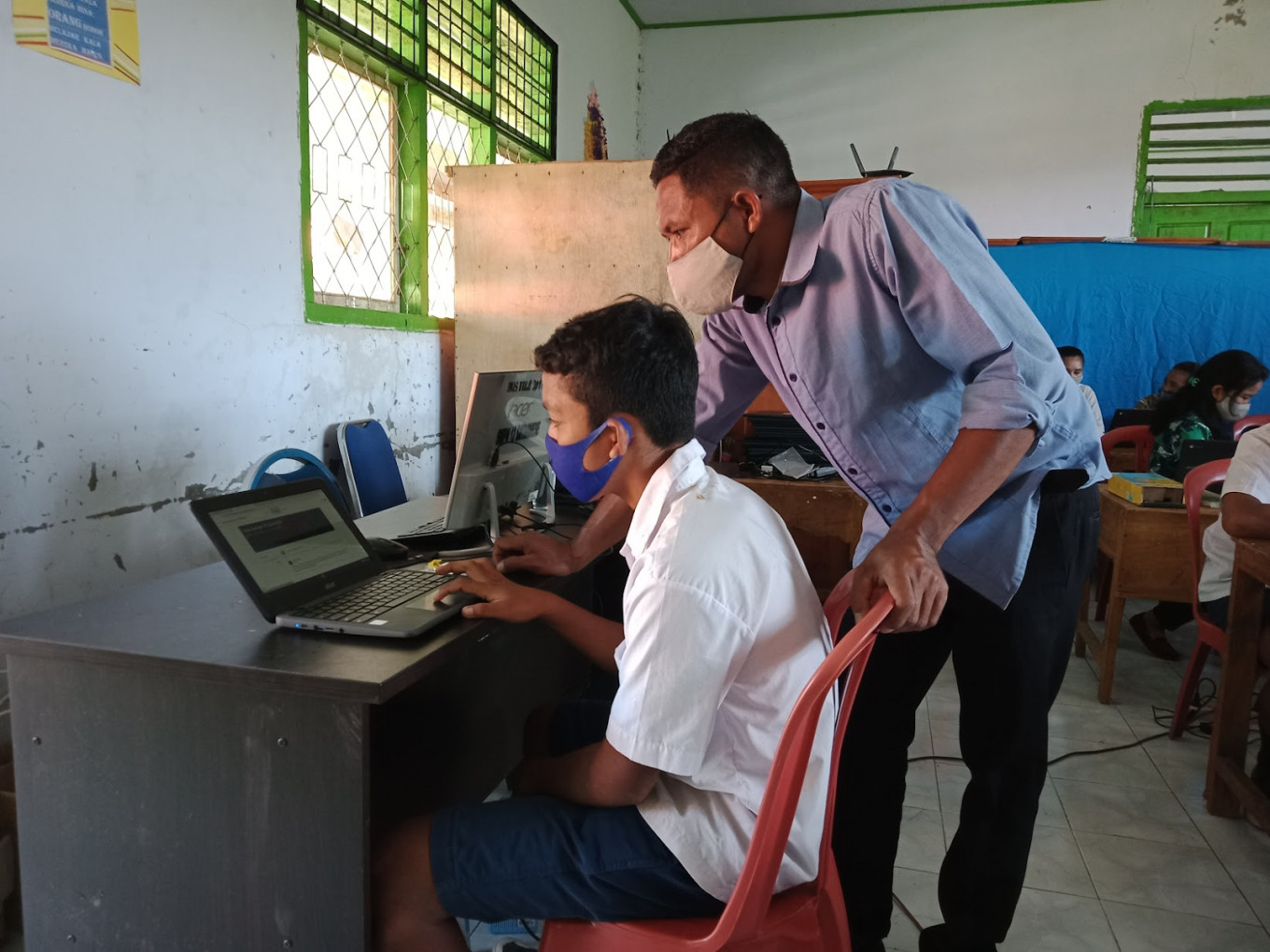Popular Reads
Top Results
Can't find what you're looking for?
View all search resultsPopular Reads
Top Results
Can't find what you're looking for?
View all search resultsLingering problems mar education in Indonesia
Holistic solution needed for teachers: Panelists.
Change text size
Gift Premium Articles
to Anyone
A
fter the education omnibus bill was scrapped last September over criticisms of misplaced priorities, educators and analysts are continuing to call on the government to tackle unresolved issues including teacher recruitment, which they fear could cause a teacher shortage that would render irrelevant any changes to the national curriculum.
Since his appointment as education, culture, research and technology minister in 2019, Nadiem Makarim has rolled out numerous policies that have taken many by surprise.
From ditching the national exams (UN) to introducing his own Merdeka Belajar (independent learning) program last year, giving teachers the freedom to structure classes to better suit different learning styles, the novice education minister has made a splash after years of rigid teaching methods.
Merdeka Belajar has seen widespread adoption though it is not mandatory, and its critics focus mainly on shortcomings in the curriculum’s implementation.
However, some experts have deemed the tech entrepreneur’s other policies superfluous, in that they failed to address some of education’s more pressing issues, like the chronic lack of teachers and their poor welfare.
Nadiem said two years ago that the ministry planned to “hire” around 1 million contract teachers, essentially by upgrading informal teachers who were paid honorariums to the status of government contract employees (PPPK). But a lackluster recruitment drive that saw regional administrations constantly proposing far lower teacher quotas than actual needs resulted in just 131,000 informal teachers signing contracts in the last two years.
On Wednesday, Nadiem told the House of Representatives that the government would develop an online recruitment platform for contract teachers next year.
“After six months of [discussions] with the Finance Ministry, the Home Ministry and the Administrative and Bureaucratic Reform Ministry, we have settled on this as a permanent solution,” Nadiem told lawmakers.
But education observer Darmaningtyas, during a discussion organized by the Centre for Strategic and International Studies (CSIS) on Tuesday, said he remained unconvinced that hiring teachers as government contract employees was a long-term solution, as it might make teaching less interesting as a job prospect. Unlike civil servants (PNS), PPPK teachers work on a yearly basis and are not eligible for a pension.
Without a solution, potential teachers could end up taking up jobs in private schools rather than wait around for a contract from the state, which might exacerbate teacher shortages at public schools.
“This is the biggest crisis facing education right now. Unless [teaching is made an attractive profession], there will be nobody to teach any curriculum, no matter how advanced it is,” Darmaningtyas said on Tuesday.
Education access
Nisa Felicia, executive director of the Center for Education and Policy Studies (PSPK) think tank, said other fundamental problems also remained unaddressed, such as the lack of access to education, particularly among junior high school students looking to enter state senior high schools.
Nisa said this was a problem even in Jakarta, where access to education should not be a lingering problem.
“In 2020, the proportion of students from junior high schools who got into state senior high schools in Jakarta is only 34 percent,” Nisa told the CSIS discussion.
She suggested that the enrollment rate could have been even lower if the Jakarta Education Agency had not imposed a zoning system that provided more opportunities for students to enroll at schools closer to home.
More policy improvements in 2020 and 2021, including a coupon system that saw Jakarta fronting some of the costs for junior high students looking to enroll either in private senior high schools or vocational schools, had increased the 2022 enrollment rate at public schools to 46 percent.
“But 46 percent is still not enough. [Zoning] is just part of the solution. There is still a lot of work to do to increase the supply side. We also have to tackle the demand side, [as students] are still impacted by poverty and high fees,” Felicia said.
Big picture
When lawmakers ordered the government in September 2022 to head back to the drawing board on the education bill, experts called on the ministry to use it as an opportunity to design a proper education road map.
Abdul Mu’ti, secretary-general of Muhammadiyah, the nation’s second largest Muslim organization, suggested that any road map should have greater emphasis on nonformal education.
“Take a look at the kids from the Under-20 soccer [SEA Games] team. If they attended a formal school, I’m not sure they would have managed, because they are training all the time,” Abdul told the CSIS discussion on Tuesday.
“Education is not just schools, that’s why the future of the education system should be open, available and accessible to all,” he said.










